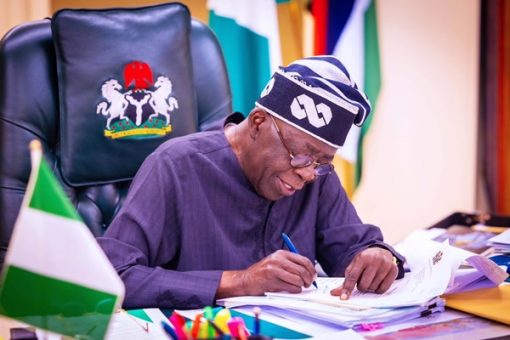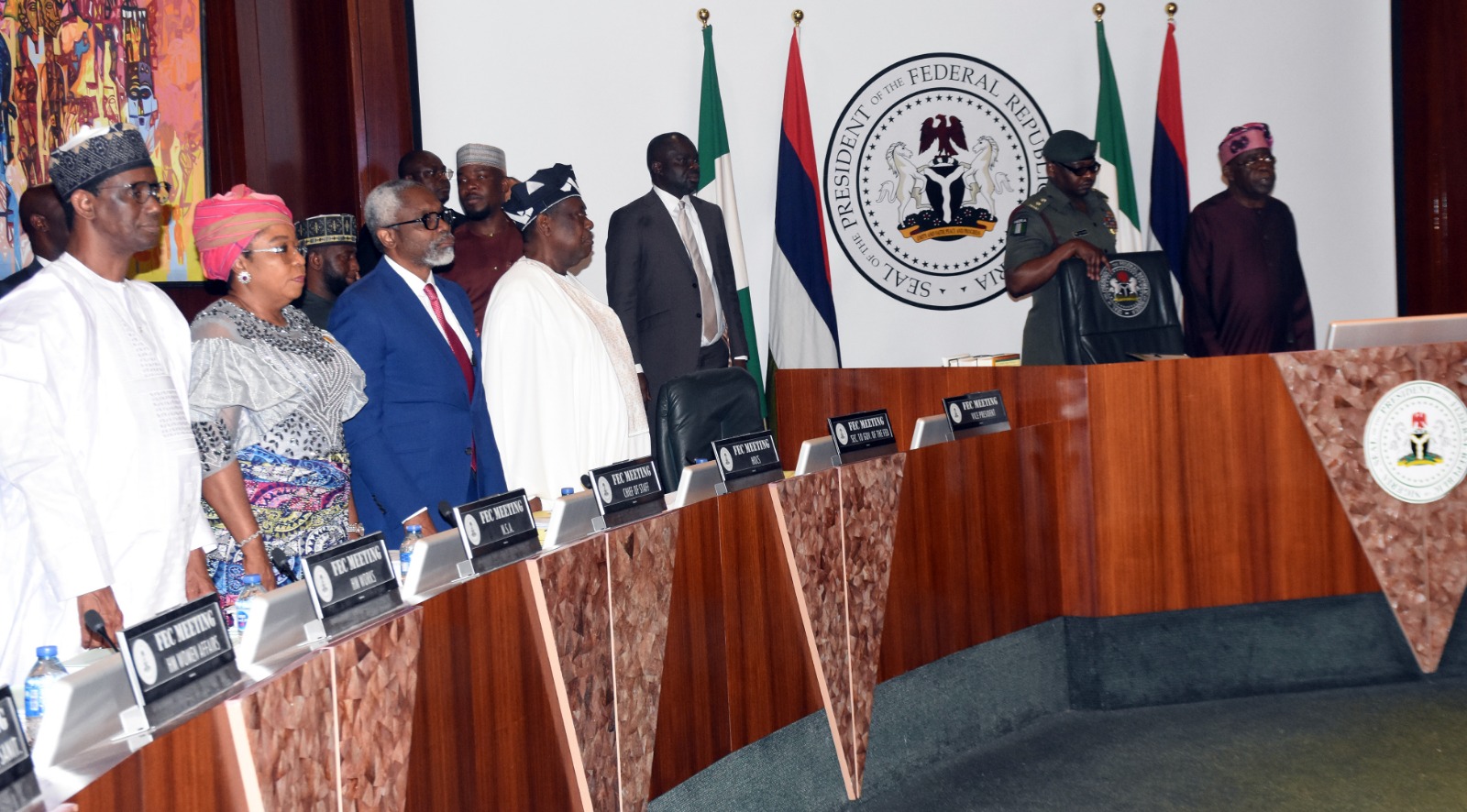By Jemimah Wellington, JKNewsMedia Reporter
PRESIDENT BOLA Tinubu has reshuffled his cabinet.
In a sweeping move to strengthen his administration, the President fired five ministers, nominating seven new ones for Senate confirmation, and merging several key ministries.
He described it as a response to growing national concerns about government performance amidst rising inflation and insecurity.
Amid growing pressure, months of public dissatisfaction with certain ministers culminated in President Tinubu dismissing Uju Kennedy-Ohanenye, Minister of Women Affairs; Lola Ade-John, Minister of Tourism; Jamila Bio Ibrahim, Minister of Youth Development; Tahir Mamman, Minister of Education; and Abdullahi Muhammad Gwarzo, Minister of State for Housing and Urban Development.
These ministers, who were appointed following Tinubu’s inauguration, have faced intense scrutiny over their performance.
Also, calls for a reshuffle had been mounting, with critics citing inadequate responses to economic hardship and insecurity.
President Tinubu’s decision to remove these officials comes as he aims to recalibrate his administration to meet Nigeria’s growing challenges.

Seven New Ministers Nominated for Senate Confirmation
To fill the gaps left by the ousted officials, President Tinubu has put forward seven new nominees for Senate approval.
Among the high-profile names is Bianca Odumegu-Ojukwu, who has been nominated as Minister of State for Foreign Affairs. Nentawe Yilwatda has been nominated as Minister of Humanitarian Affairs and Poverty Reduction, a position previously held by Betta Edu, whose tenure was suspended earlier in the year due to fiscal misappropriation.
Also included in the fresh nominations are Maigari Dingyadi for Minister of Labour and Employment, Jumoke Oduwole as Minister of Industry, and Idi Maiha as Minister for the newly created Livestock Development Ministry.
Tinubu’s nominations reflect a mix of experienced technocrats and new faces to invigorate his administration.
Ministries Merged for Greater Efficiency
Earlier today in an effort to streamline government operations, Tinubu has merged and reorganized several ministries.
The Ministry of Niger Delta Development has been scrapped, replaced by the Ministry of Regional Development, which will oversee regional development commissions, including the Niger Delta, Southeast, and Northeast commissions.
The Ministry of Sports Development has also been dissolved, with its responsibilities transferred to the National Sports Commission, tasked with developing a “vibrant sports economy.”
The President said this is to shift sports management from federal control to a more specialized commission capable of fostering professional growth.
Additionally, the Ministry of Tourism has been merged with the Ministry of Arts and Culture to form the new Federal Ministry of Art, Culture, Tourism, and the Creative Economy.
This strategic move is designed to promote Nigeria’s cultural assets and boost the country’s growing creative industry.
New Portfolios for 10 Sitting Ministers
Beyond the sackings and nominations, ten sitting ministers have been reassigned to new portfolios. These changes include John Enoh now heading the Ministry of Sports Development, Yusuf Sununu moving to the Ministry of State for Education, and Ayodele Olawande stepping into the Ministry of State for Youth Development.
These reassigned ministers, alongside the newly appointed ones, were urged by President Tinubu to take their roles as calls to national service.
He emphasized the urgency of Nigeria’s current challenges, calling on his cabinet to demonstrate excellence and commitment to the administration’s goals.
Moreover, the President notes that a significant focus of his reshuffle is the emphasis on regional development and agriculture.
With the creation of the Ministry of Livestock Development, led by newly nominated Idi Maiha, the government aims to address long-standing issues related to the agricultural sector.
This is expected to not only improve food security but also boost economic development in rural areas.
The newly created Ministry of Regional Development will now supervise several regional commissions, providing greater coordination and oversight across Nigeria’s diverse regions.
Key Appointments in Sports and Public Communication
As part of the restructuring, Tinubu has appointed Shehu Dikko as the Chairman of the National Sports Commission.
His leadership will be crucial in developing Nigeria’s sports sector, transitioning it from federal oversight to a more professional, market-driven model.
In the area of public communication, Sunday Akin Dare has been appointed Special Adviser to the President on Public Communication and Orientation, working under the Ministry of Information and National Orientation.
His role will involve crafting the government’s messaging strategy and public outreach.
Vision for Nigeria’s Growth
The President also said that this cabinet reshuffle is part of his broader strategy to position Nigeria for long-term growth.
Speaking to his new and reassigned ministers, he expressed confidence that these changes would reinvigorate his administration and lead to better outcomes for Nigerians.
“Our goal is to set Nigeria on an irreversible path to growth. These changes reflect our commitment to reform, and I expect all appointees to work tirelessly toward achieving the priorities of this administration,” Tinubu said during the FEC meeting.
He highlighted the importance of tackling Nigeria’s economic challenges, improving security, and ensuring youth empowerment as top priorities.





